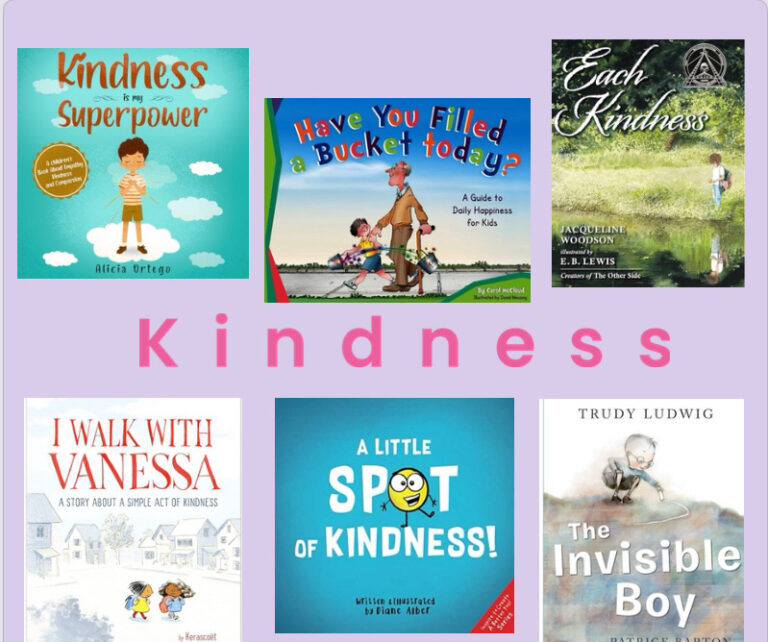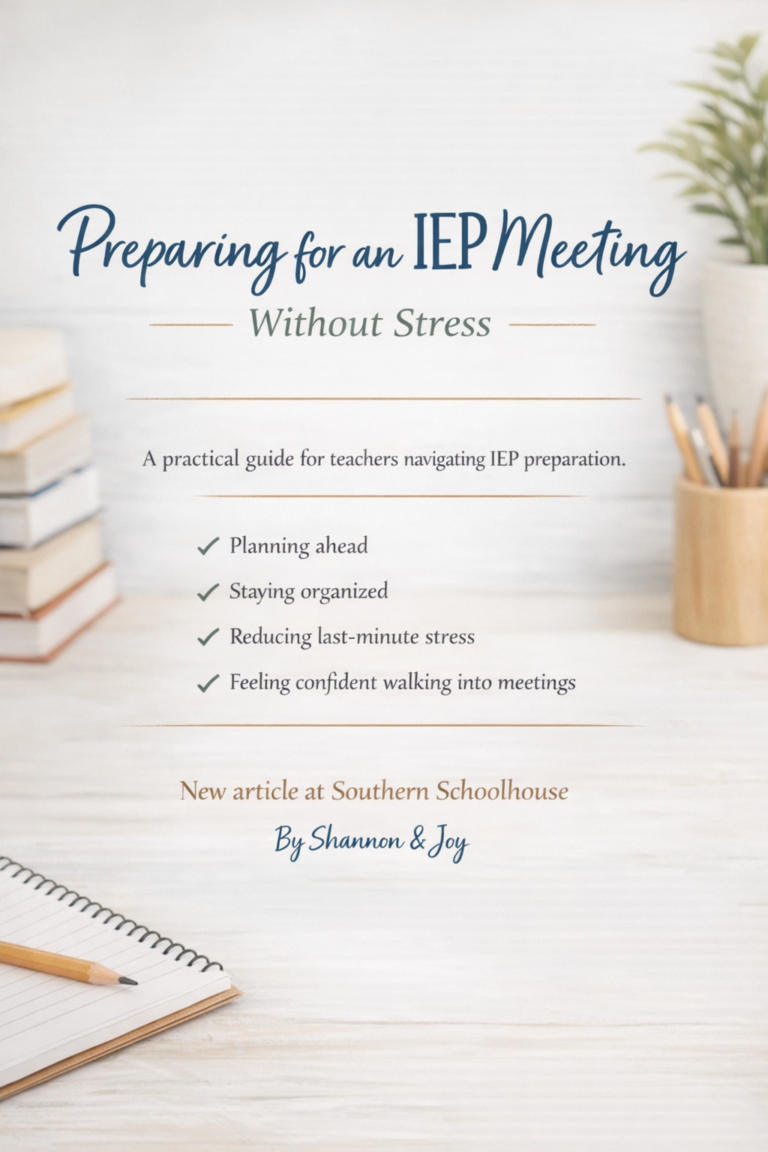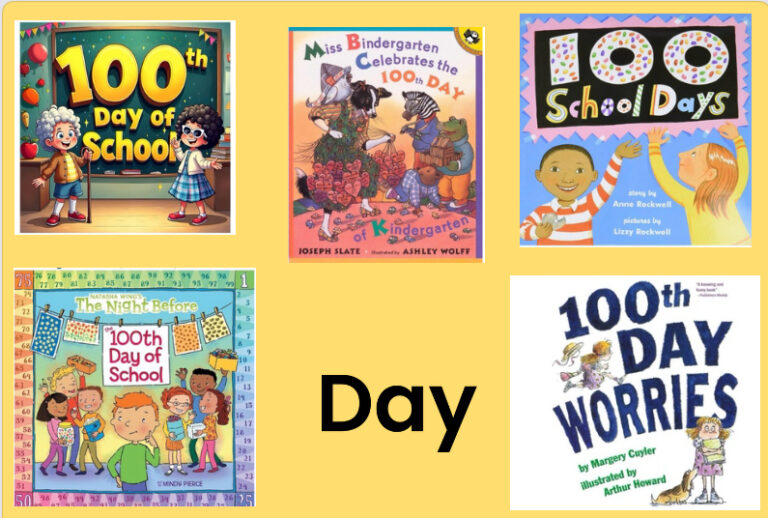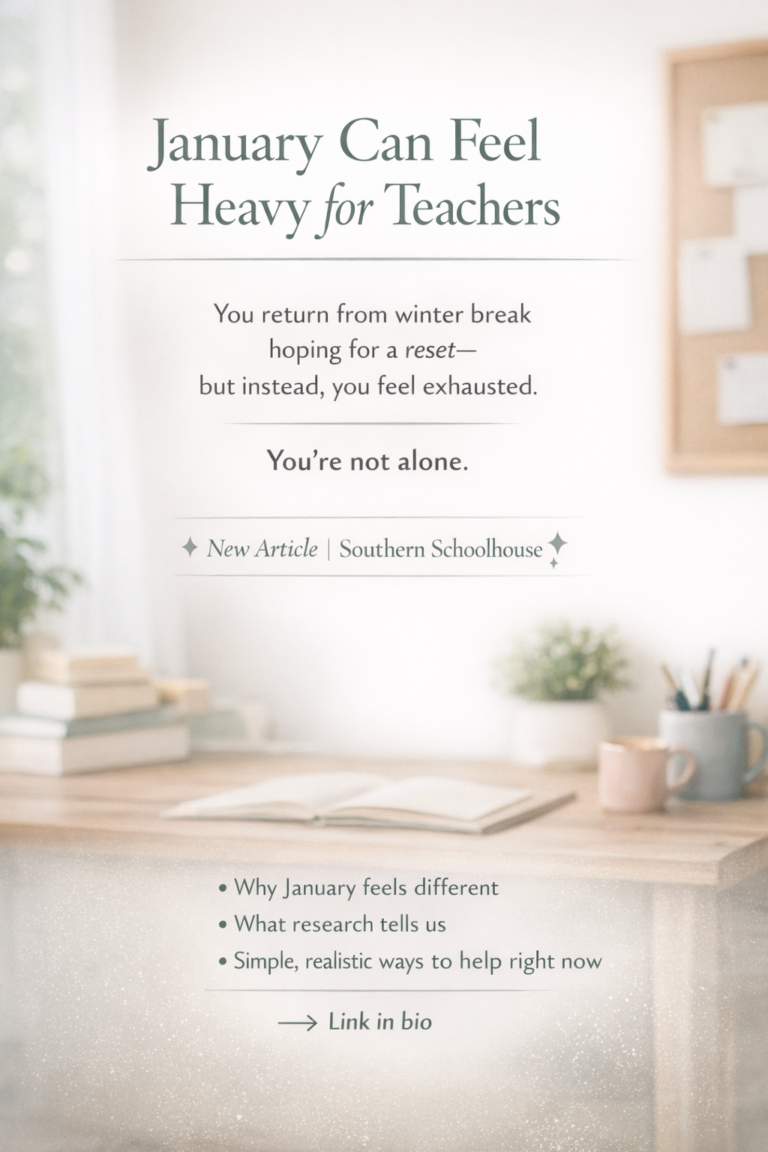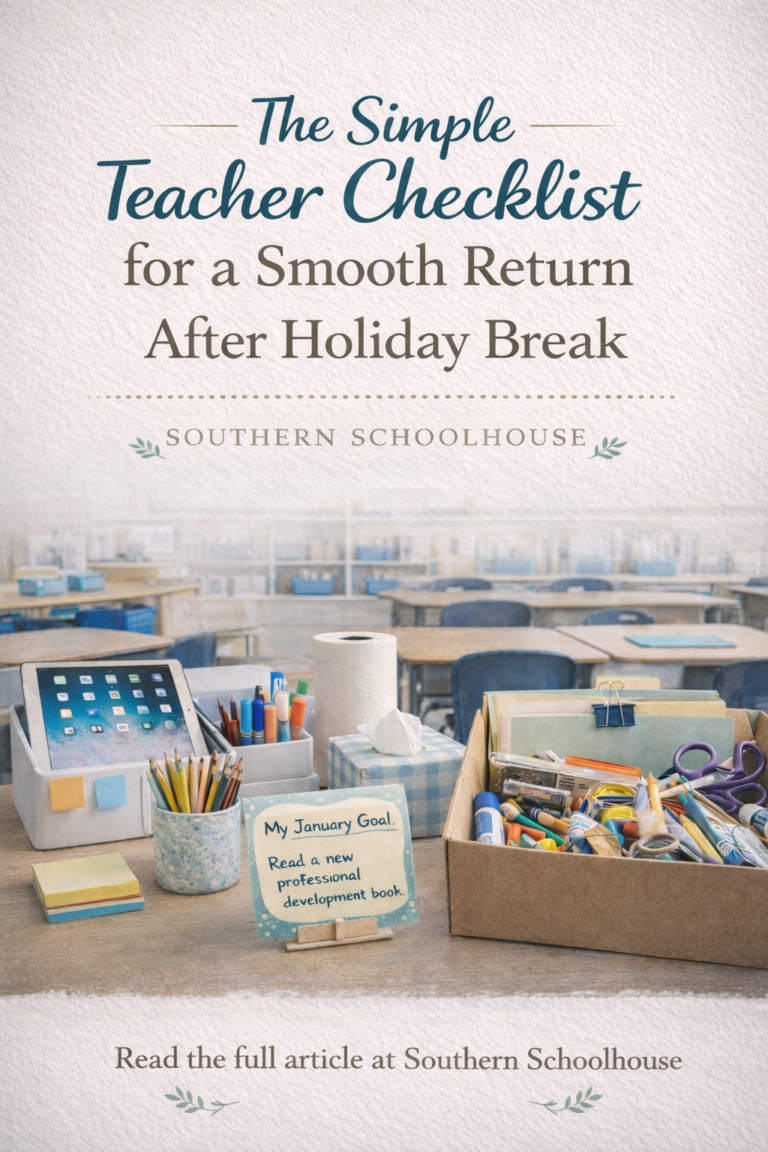By Shannon at the Southern Schoolhouse
I still remember the day my oldest, Kayla, started kindergarten. I had packed her little backpack the night before, laid out her outfit, and practiced saying goodbye without crying (just me, not her). The transition was made a little easier because she was at my school, but it was still difficult thinking my baby was starting school.
The truth is, it was hard, but each time, with each of my three kids, it got a little easier. Not because I cared any less, but because I learned more about what they needed and what I needed to make the transition smoother.
So if you’re standing at the edge of this big step, wondering if you’re ready (or if your child is), I promise you’ve got this. Here are five tips that you can apply for a great start to school!
Talk Positively About What to Expect in Kindergarten:

Start by helping your child feel prepared (not overwhelmed) by talking through what a day in kindergarten might look like. Keep your tone positive and encouraging. Look for natural moments throughout the summer to connect everyday school routines like getting dressed, eating lunch, or playing with friends. The earlier you start weaving school into daily life, the more comfortable it will feel for your child.
Practice Daily Routines Early:
Ease into school routines a few weeks before the first day. This includes setting a consistent bedtime, waking up at a regular time, and practicing getting dressed and eating breakfast. Simple habits like packing a backpack together can also build independence and confidence. Check out this other article, “It’s Time to Go!” How Morning Routines Save the Day-

Encourage Independence with Small Tasks:

Kindergarten teachers appreciate when children can do things like zip their coat, tie shoes, use the bathroom independently, or open their lunchbox. Practice these skills at home so your child feels capable and empowered in the classroom.
Build Emotional Readiness for Kindergarten:
Talk openly about feelings and help your child learn how to manage big emotions. One simple way is to practice telling the difference between big problems (like getting hurt) and small problems (like not getting the crayon color they wanted). Read books (see article) about starting school, play “school” at home, or role-play how to ask a teacher for help. Remind your child that feeling nervous is normal and those feelings usually fade once they get used to their new routine and teacher.
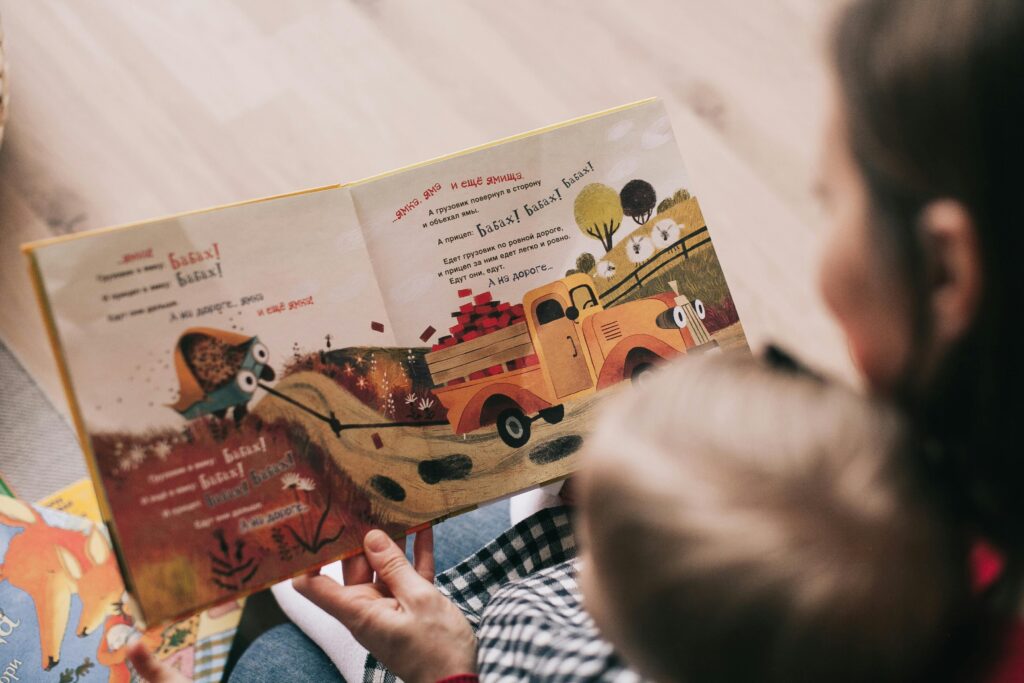
Connect with the School Community; Especially other Kindergarten Families:

Attend school events, meet the teacher, and explore the school playground if possible. These small steps help your child feel more connected and less anxious. Building a relationship with your child’s kindergarten teacher and other parents sets the tone for open communication all year long.


